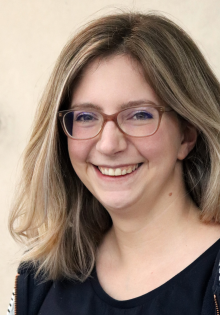Compensation for disadvantages - What you should know as a teacher

There are many different ways to achieve a goal. Students with a disability often have to take a different route than the prescribed one in order to achieve the same level of performance as their fellow students. For this reason, affected students have the right to compensation for disadvantages both for the organisation and implementation of their studies as well as for the adaptation of examinations and performance records. This entitlement is enshrined in law and is regulated in the examination regulations of the degree programmes.
Conditions for compensation for disadvantages
Compensation for disadvantages is always individually tailored to the impairment of the student in question and to the specific obstacles to study. In this specific case, this means that even if two students have very similar impairments, the support they need can be very different. The mere existence of an impairment does not automatically mean that there is also a disadvantage in studying.
The application must be submitted by the student in writing to the Examination Board in good time before the examination. The Service Centre for Students with Disabilities provides a form that can be used for this purpose. The application must state the desired examination modifications and the reasons why these are necessary. In addition, the restrictions in the degree programme in connection with an impairment must be documented with suitable evidence. The examination board examines the entitlement to compensation for disadvantages and ensures that the requested modifications are necessary, suitable and appropriate in the specific individual case in order to realise equal opportunity examination conditions.
The approved modifications must enable equivalent performance records that are in line with the content requirements of the examination regulations. Students must be able to acquire the competences required in the respective examination regulations and demonstrate this knowledge through examinations.
This means that although the forms of performance and examination conditions can be changed, the performance targets cannot.
Examples of individual compensation for disadvantages
- Time extensions for a longer processing time in written examinations, including breaks, or for the completion of coursework, such as a term paper or a presentation
- Compensatory or substitute work, e.g. written contributions compensate for absences or are prepared if students are unable to complete mobility-intensive coursework (e.g. field trips)
- Modification of examinations if the examination relates to previously completed coursework that the student is unable to complete due to illness (e.g. excursion)
- Change of examination form, e.g. the conversion of written examinations into oral examinations or vice versa
- Withdrawal from the assessment process outside of prescribed deadlines (for serious reasons, e.g. additional illness, special stressful situations, cancellation of assistants)
- Provision of or consent to the use of technical aids or personnel support: PC for students with visual impairments and editable electronic tasks (e.g. Word) or workstations for wheelchair users, non-specialist typists or sign language interpreters
- Use of separate seminar or examination rooms
How we can support you
The Service Centre for Students with Disabilities is happy to support you as a lecturer with, among other things
- personal counselling
- further education programmes
- Adaptation of teaching materials into accessible digital formats
as well as in the case of approved compensation for disadvantages by the examination board:
- Adaptation of examination materials into accessible digital formats
- Provision of the study room for students with disabilities as an examination room if students have a need to use assistive technology (e.g. PC with magnification software, voice output or Braille display, reading device, lighting)
- Staff support for extended examination times or dedicated examination rooms
Please feel free to arrange a personal consultation with us!

